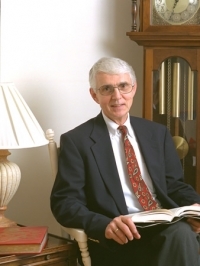This post was originally published on this site
For me, it is sheer delight to be with you, even in script. I have so many fond memories of my time with many of you, though some of you I have not met.
What is love, really? We Orthodox always begin at the same place, namely with Christ who is God, who is Love. He is love, He gives love, He gives us the capacity to love. Without Him we cannot love, we would have a loveless life. He is “all in all.” He gives us persons to love us and whom we can love. But, it is easy to forget or override this basic truth.
In our culture we use the word “love” casually and loosely. I know that I do, rather unwittingly. I can say, “I love Haagen Dazs French vanilla ice cream,” or “I love watching videos on the history channel,” or “I love walking in the rain with an umbrella.” So, what does love mean?
Love in its deepest sense means a sharing with another human being the very energy of Christ. Well, doesn’t that sound elusive? Yes, it seems elusive but after some thought, it is not elusive at all. It can be very simple yet very difficult to sustain.
It can be hard to embrace the truth that love is not primarily about feelings. We know that we can love someone and feel distant from them at the same time. We can love someone and be ‘at odds” with them for awhile. A father can be walking in his pajamas, carrying his crying newborn daughter at 2:30 AM. Walking while she is screaming. He is fatigued, grumpy and doing the “loving thing” that he chooses to do. He loves his daughter and he feels nothing of love at that moment. He feels distraught.
Love for College Students
For you, college students, romantic love is not primarily about feelings. Yes, feelings are part of being human but can very easily be deceptive. You know that from your own experience. We all have such experiences in our past. You know others who have been tragically hurt because they let their feelings get the best of them, only to pay a high price later. Of course, we all enjoy feeling “good.” But, we are also looking for something deeper. College students are of an age where they are aware of the desire for a life-partner. They may not put that desire as front-and-center but it is not far off. That is what we are talking about.
Dating is a fine part of life. And, as the old saying goes, “You win some and you lose some.” That is, some dates are nourishing and some dates can be depleting for a host of reasons. OK.
When a relationship seems to become serious what is the criterion for authenticity? What makes a relationship “real,” “of Christ?” The direct answer is “commitment.” Another way to say “commitment” is self-sacrifice. Is this person demonstrably willing to put aside their needs and wants for me? Am I willing to put my needs and my desires aside for this person? The deepest level of self sacrifice is, “Are they willing to die for me?” Sounds lofty but I know persons who can clearly say that, “I know my partner would die for me.”
The converse is clear. In a shaky relationship the couple makes choices for exclusively enjoyable activities, avoiding the “work” of a sustainable human relationship. Yes, real relationships require work and require living with dissonance simply because we are all children of Adam and Eve, like it or not.
Physical and emotional attractiveness are not the essence of a relationship, although such attractiveness is often the beginning of something deeper. Often we are attracted to someone who is attracted to us. We love to be loved. That can be a problem.
Love and Lust
When pondering a romantic relationship we acknowledge the difference between lust and love. Lust and love “feel” the same but have polar opposite consequences. Lust is about self gratification, self pleasure. Love is about self-sacrifice, putting the other above my pleasures. Lust leads to darkness and alienation. Love leads to light and to union. All this is countercultural, going against the many narcissistic messages we are getting. You and I do have narcissistic tendencies that we need to vigilantly surrender to Christ. Our narcissistic tendencies are vulgar. Our surrender means that we say, “Lord have mercy,” arrow prayers, through the day and night as we become aware of our narcissistic thoughts or behaviors.
A wonderful relationship with all its joys and sorrows is life-giving and beautiful, as given to us by Christ,. We move our ego out of the way and we let Christ in, and then He gives us the person He wants us to have. Some in Orthodoxy teach that the life-partner is not only our “soul mate” but also our “sandpaper,” all for our growth in love. Life is paradoxical. As Father Hopko often said, “Orthodoxy is paradoxy.”
Conclusion
In conclusion, love really is a mystery, a mysterion, a gift from Christ for us to give and to have, to embrace with all our being because love is the only way we can thrive on this planet. Love is a sacrament. Only love can make a memory.

Dr. Albert Rossi
Licensed Clinical Psychologist
Dr. Albert Rossi is a licensed clinical psychologist and Christian educator who has written numerous articles on psychology and religion. He has published two books through Ancient Faith Publications entitled, Becoming a Healing Presence and All is Well. Dr. Rossi was a member of the SCOBA Commission on Contemporary Social and Moral Issues for six years. He hosts the podcast Becoming a Healing Presence on Ancient Faith Radio.



